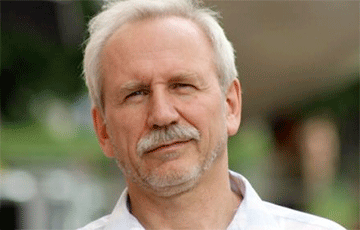They Write ‘Economic Integration’, Meaning ‘Political Dependence’
- VALER KARBALEVICH
- 18.09.2019, 17:24
- 3,863

And who needs this?
The publication of the well-informed Kommersant newspaper shed some light on the documents signed by the Prime Ministers of Belarus and Russia on September 6. Although it does not appear a special sensation. For many months, officials of the two countries have argued about the preparation of the program, which provides for harmonization of economic legislation and economic policy of Belarus and Russia. Belarusian Prime Minister Siarhei Rumas formulated the model as follows: two states, one economy.
It is important to note that this is not the implementation of the treaty establishing the Union State of 1999, since that document provided for the creation of supranational authorities. And, according to Kommersant, nothing is said about such agencies in the developed program of integration.
Then, a logical question arises: what is the meaning of such construction? Who needs it?
After Dmitry Medvedev announced the plan of “compulsion to integration” last December in Brest, the majority of experts came to the conclusion that with the help of the Union State, Putin would like to continue his presidential powers after 2024. But the reduced integration option, which eventually surfaced, does not give the head of Russia any benefits. Then why does the Kremlin need it in this form?
There may be two answers. Firstly, it would be a little uncomfortable to state now, like, we don’t need integration in this form. It would be like, they urged the process themselves, and now backpedal?
Secondly, the construction that is being created now makes sense as a transitional model, as a step towards closer integration in the future. After all, if the project is implemented in the form in which it is assumed that Belarus would be strongly tied to Russia, Moscow will have a strong leverage. Then it will be easier to force Minsk to the next step, for example, the transition to the single currency (i.e. Russian ruble). And there, there will be already one step closer to a unified government, as there cannot be monetary integration without a single central bank. And so on until the full unification.
Why does Belarus need it? In the country's leadership, there is hope that the Belarusian products will receive preferential conditions for access to the Russian market, access to the Russian state orders. I think this hope is largely illusory. After all, access to the Russian market is largely dependent on the ability to compete with Russian (and Chinese) products than on benefits.
There is also an assumption that under this program Belarus will receive Russian domestic gas prices and oil earlier than in 2025 (the year is clearly stated in the EAEU documents as the moment of transition to the unified energy market). However, in the documents signed by Prime Ministers, there is a vague reference only to the creation of a “single regulator” of the markets of gas, crude oil, petroleum products and electricity.
And the main thing. Minsk hopes that as soon as Putin and Lukashenka sign these documents, Russia will resume subsidizing the Belarusian economy. In fact, Lukashenka said this as he heard the report of Chairman of the State Customs Committee Yury Sianko on September 16. Speaking about the tax maneuver in Russia, the Belarusian leader said: “I think, in the near future, we will, establishing a program of joint actions, have to go back to this point also.” That is, translating into understandable language, Lukashenka said that without Moscow’s solid commitments to compensate for the tax maneuver and the return of other benefits (gas, loan), he will not sign these documents.
And anyway, as soon as it comes to specific things, the practical implementation of the project of unification of economic policy, an endless debate will start. After all, the economies of Belarus and Russia are very different, with different size, structure, business model. It will be difficult, even harmful, to equalize them. For example, Belarus and Russia have different sources of filling the budget. And unification of tax and customs legislation will immediately create problems. First of all, Belarus is a much smaller country.
But even if we imagine that all goes according to plan, the parties actually implement the construct “two states, one economy”, the result will be losses for Belarus. As the unification of legislation and economic policy will go mainly under the Russian rules. It is hard to imagine that Russia will adjust to Belarus. Belarus will have to subordinate its interests to those of the neighbor. The barriers preventing the predatory Russian capital, with all the negative consequences for the Belarusian business from getting here, will be ruined.
If 15-20 years ago it was possible to argue that such a unification process will be compelled to introduce market reforms in Belarus, and now it is not the case. The Russian economy is rapidly nationalized and can no longer serve as an example of a market economy.
Most importantly, the economic dependence of Belarus on Russia will increase. This will strongly tie the hands of the official Minsk to conduct an independent foreign policy, sharply limit the aspirations of neutrality, a peacekeeper status, destroy foreign economic strategy of diversification, make the country vulnerable to any pressure from Moscow. And who needs this?
Valer Karbalevich, Radio Svaboda









